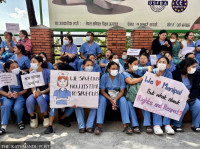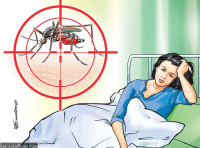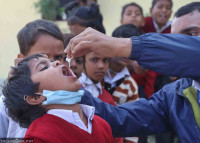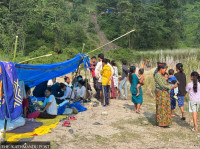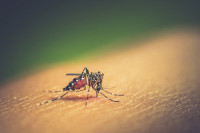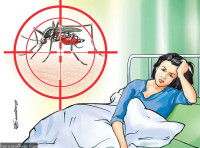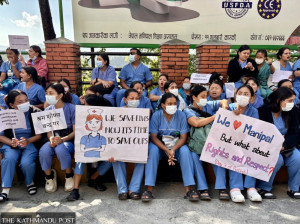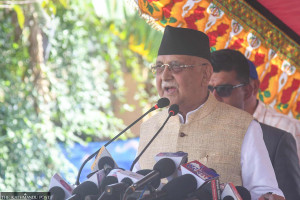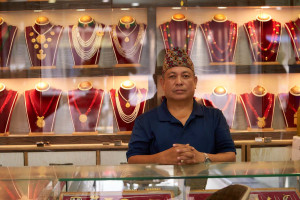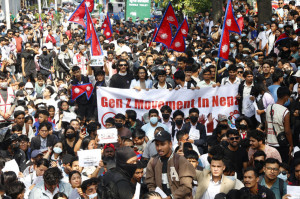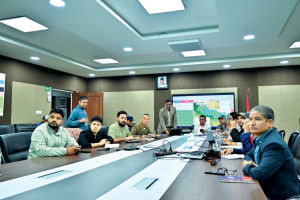Health
Covid jabs for 5-11 year olds likely pushed to June last week
Earlier the government had decided to inoculate them from April. But vaccine doses from COVAX are unlikely to arrive before June.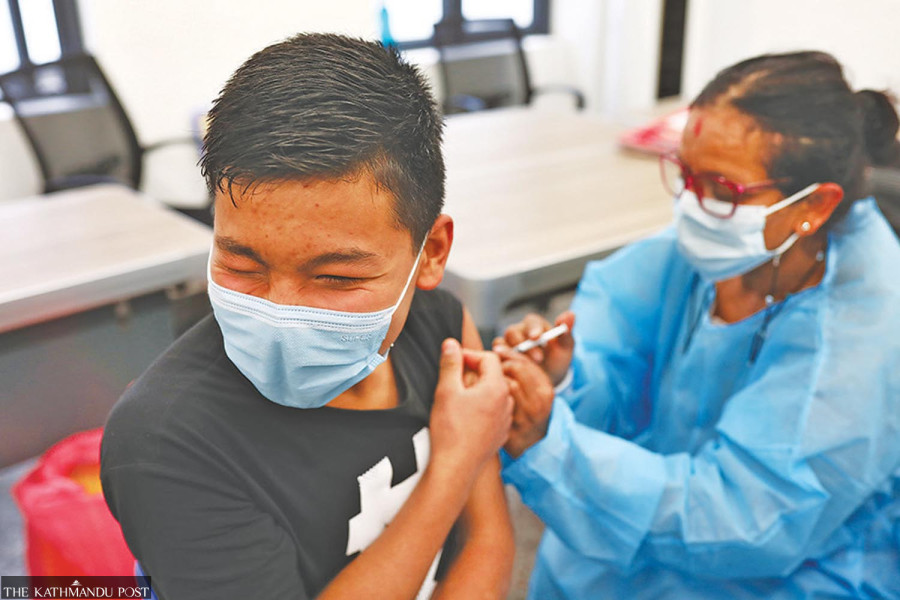
Arjun Poudel
Children between five and 11 years are likely to be immunised against Covid-19 only from the last week of June since vaccine doses from the COVAX facility are not expected to arrive before that.
The government has decided to take vaccine doses from the facility, the United Nations-backed international Covid-19 vaccine-sharing scheme, for children of the said age group, said Dr Roshan Pokhrel, secretary for the Ministry of Health and Population. “The date of the vaccine supply is yet to be fixed, but we hope it will be at the earliest,” Pokhrel said.
Earlier, the government had decided to inoculate children between five and 11 years with the Covid-19 vaccine from April.
The Health Ministry had decided to purchase 8.4 million doses of the vaccine. The government also signed an agreement for a concessional loan of $18 million with the World Bank to procure the doses.
But with the Covid-19 infection rate dropping significantly of late, the process to procure vaccine doses for the said age group has been put on the back burner.
Now the authorities concerned have dropped the idea to purchase the vaccine doses and wait for the COVAX facility to supply them to inoculate children of the target group.
There are two types of Pfizer-BioNTech Covid vaccines for children—one is for those between five to 11 years, and another for those aged 12 and above. Nepal has already used Pfizer vaccines on those with comorbidities and on children between 12 and 17 years.
The Pfizer-BioNTech vaccine is the only jab recommended by the World Health Organisation for use in children between five and 11 years old.
The American Association of Paediatrics has recommended administering 10 microgram doses in a gap of 21 days to children between five and 11 years. The dose, 0.2ml, is one-third of what is administered to adolescents and adults.
The vaccine vial for children in the said age bracket comes with an orange cap while the other vial is purple-capped.
Each vial with 10 doses needs 1.3 millilitres (ml) of diluent under Pfizer’s preliminary plan.
The US Food and Drug Administration in October authorised emergency use of the Pfizer-BioNTech Covid-19 vaccine for children between five and 11 years. Several countries have already started administering the vaccine to children of that age bracket.
“We will most likely start administering the vaccine to children between five and 11 years old from June last week,” said an official at the Department of Health Services, asking not to be named. “Vaccine doses will be supplied in several consignments since we do not have the storage facility to store all the required vaccine doses at once.”
The Pfizer-BioNTech vaccines can be stored for six months in an ultra-cold freezer or 10 weeks in a normal refrigerator, under Pfizer’s recommendation. Nepal’s Health Ministry can store up to two million doses of Pfizer-BioNTech vaccine at once.
Nepal so far has received 53,381,570 doses of Covid-19 vaccines of various types—AstraZeneca, Vero Cell, Moderna, Janssen.Sinovac-CoronaVac, and Pfizer-BioNTech.
As of Wednesday, as many as 19,625,334 people or 67.2 percent of the total population have been fully vaccinated in the country.




 18.12°C Kathmandu
18.12°C Kathmandu
